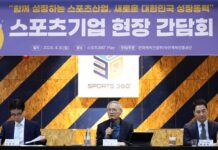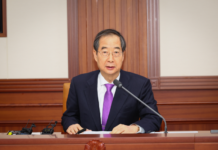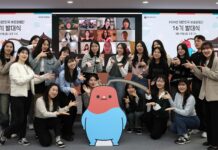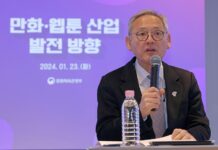
The Open Government Partnership Asia-Pacific Regional Meeting opened on Nov. 5 at the Westin Chosun Hotel, Seoul. Panel discussion speakers introduce cases of the open government partnership practices from their home countries.
By Yoon Sojung
Photos = Jeon Han
Seoul | Nov. 5, 2018
Governments and civic groups of the Asia-Pacific region gathered in Seoul to share outcomes of the open government commitment of their home countries and measures to extend people’s participation in government.
They discussed future cooperation among countries in order to realize the vision of participatory democracy at the Open Government Partnership (OGP) Asia-Pacific Regional Meeting which took place on Nov. 5 and 6 at the Westin Chosun Hotel, Seoul.
The theme of the two-day gathering was “Promoting Participatory Democracy, Improving Governance for a Better Life for All, Renewing Public Trust through Government Innovation.”
The OGP is an international structure based on cooperation between governments and civic groups aimed at boosting transparency in government, eradicating corruption, vitalizing civic participation and using new technologies for better governance. It was initially formed in 2011 by eight countries, including the United Kingdom, the United States, Brazil and the Philippines. This year’s meeting was co-hosted by Korea’s Ministry of the Interior and Safety and the OGP. A total of 484 people attended the gathering, including the 16 OGP member countries in the Asia-Pacific region.
The participants took a closer look at Korea’s candlelight revolution and the Gwanghwamun 1st Street, an open venue to reflect public opinion concerning politics, for new policy ideas, as exemplary cases of participatory democracy.
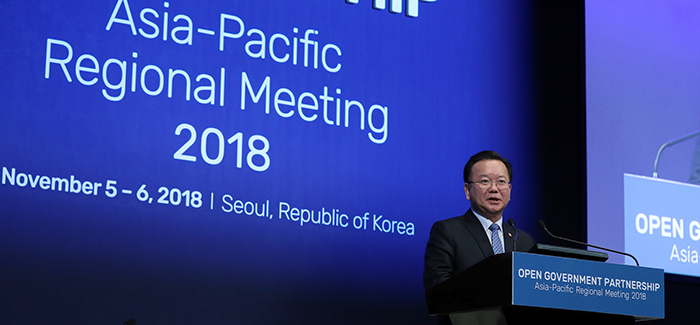
Minister of the Interior and Safety Kim Boo Kyum addresses the opening ceremony of the Open Government Partnership Asia-Pacific Regional Meeting at the Westin Chosun Hotel, Seoul, on Nov. 6.
Minister of the Interior and Safety Kim Boo Kyum introduced the Gwanghwamun 1st Street as one of the ways that the Korean government has been working hard to realize the goal of creating an open government. Minister Kim urged that governments should institutionalize participation of the people. “Through international cooperation and information opening, we should vow to build more opened governments and to advance the quality of life” he said.
OGP Chief Executive Officer Sanjay Pradhan also praised the Gwanghwamun 1st Street, while stressing that the governments should lower their thresholds in order to listen to voices of more citizens.
The OGP head mentioned Korea as one of the countries that ousted a corrupt government through a civic movement. “Thousands of citizens headed to the Gwanghwamun Street to hold the candles together. Later, they gathered at the same place again to express their opinions so that their voice can be heard in the policy-making process,” Pradhan said.
“Such civic action is in the OGP spirit,” he said. “Citizens and society need to monitor the government so that it can protect the public interest.” He also emphasized the importance of cooperation among the OGP countries in order to realize the ideal which Korea’s candlelight revolution pursued.
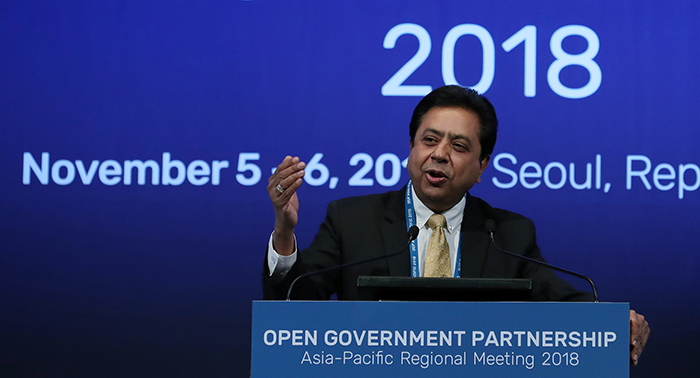
OGP Chief Executive Officer Sanjay Pradhan mentioned Gwanghwamun 1st Street as a model of participatory democracy at the opening ceremony of the Open Government Partnership Asia-Pacific Regional Meeting at the Westin Chosun Hotel, Seoul, on Nov. 6.
The participants in the meeting shared cases of open government partnership practices in their home countries, not only in politics but also in the education, parliament and welfare sectors.
Munkh-Erdene Dambajav of the Cabinet Secretariat of the Government of Mongolia shared Mongolia’s case of the open government partnership practice in the education sector. He explained about the so-called “CITIENGAGE” project in which the local governments reflected direct opinions from local residents in order to improve old facilities of schools and dormitories in the Khovd River region. Dambajav said that the renovation work was carried out successfully thanks to the citizens’ direct participation, which extended access to education to 80,000 more people.
Georgian lawmaker Irina Pruidze introduced the establishment of a parliamentary open council as a case of the open government partnership in the parliamentary sector. She said, “Thanks to the parliamentary open council, public trust in the parliament was boosted.”
“When the value of the open government is realized, it will increase people’s participation and will embrace diversity,” she added.
Sankhitha Gunaratne of Transparency International Sri Lanka said information opening will lead to the expanded participation of people and to realize the goal of open government. She introduced a case of a small town that had suffered from the civil war a long time ago in her country and said that the local residents went through many changes after the government announced that it would compensate the region.
“Under the OGP practices, voices of local citizens were reflected in the government’s compensation procedures so that changes for the better have been made to the local community,” she added.
arete@korea.kr


